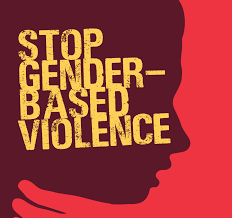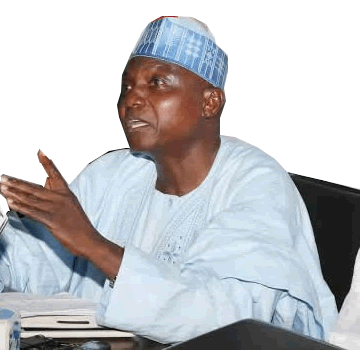FEATURES
Engaging Nollywood to Showcase Nigeria’s Tourism Endowment

By Joshua Olomu
All over the world film is more than an entertainment outlet. It is used as a tool for shaping opinions, driving national narratives to the larger world and projecting a nation’s cultures, economic, technological and other advantages.
Besides its entertainment value, one area where the motion picture is intentionally applied is as a tool for global marketing and advertisement of the tourism sector.
Films are unique platforms for promoting tourism, offering a blend of entertainment and destination marketing that can captivate audiences and inspire travel.
Some of the most admired and visited tourist attractions and destinations, such as the Eiffel Tower in Paris and the Great Wall of China attracted global attention through the power of the visual media.
The wonder of the screen can make tourists travel from around the world to visit the Statue of Liberty in New York and the Pyramids of Giza in Egypt.
Films are powerful tools for promoting tourism by bringing destinations to life, showcasing their unique attributes, and inspiring audiences to visit the real-world locations they have seen on screen.
Nigeria’s film industry, known as Nollywood, is globally recognised as the second largest film producer in the world, turning out over 2,500 movies yearly.
It is only surpassed by Bollywood of India, even though Nollywood does not rake in as much income annually as the others, it is renowned for its rich and unique storytelling attributes.
Before COVID-19 pandemic erupted Hollywood contributed $504 billion to the U.S. GDP. The figure represents at least 3.2 per cent of the goods and services portion of GDP.
Conversely, according to a research firm, PricewaterhouseCoopers, Nigeria’s film industry contributed only $660 million to Nigeria’s GDP in 2021.
One of those who think Nollywood can do better in terms of revenue generation for the country is the Vice-Chancellor, University of Abuja, Prof AbdulRasheed Na’Allah.
“Nollywood can turn around the fortunes of the Nigerian economy. The government must understand that now.
“It is in the interest of the government to know that film industries are multi-million-dollar ventures. They can create wealth.
“From all over the world, people are watching Nollywood. People are beginning to know Nigeria through Nollywood.
“Is it our music, film, cultural dance, or language? We are taking the world by surprise, and because it is going to Japan, China and America, it is creating foreign reserves for Nigeria”, he said.
He spoke at a three-day conference in Abuja, yesterday, in honour of visiting lecturer, Prof Onookome Okome of the Department of English and Film Studies, University of Alberta, Canada, the VC tasked the Federal Government to support Nollywood.
Just like the Nigerian music brand, Afrobeat, Nollywood products have evolved to become global brands that are known and accepted across the world.
In recent times, the industry has produced blockbusters that have been screened in international cinemas, nominated and screened at prestigious festivals such as the Toronto Film Festival, Berlin Film Festival, Cannes Film Festival, among others.
Therefore, it can be argued that Nollywood, as one of Nigeria’s best exports to the world, has not been adequately engaged in showcasing the nation’s rich tourism potential to attract inbound tourists.
Nigeria is known for its rich historical and cultural heritage, breath-taking landscapes and diverse wildlife, which position it as a potential choice destination for tourists seeking unique experiences and adventures.
The country is home to nature tourism, with a lot of natural attractions, including lush rainforest, Savannas, wetlands and unique flora and fauna, spread across its six geopolitical zones.
This diverse ecosystem offers interesting activities to tourists, such as bird-watching,photography,star-gazing,camping,hunting,fishing,hiking and games viewing.
However, with these amazing tourism attractions spread across the country, beside various cultural fiesta and celebrations, Nigeria is yet to be classified as a global tourism destination.
In the 2019 UNTWO World Tourism Ranking, Nigeria was not among the first 10 countries in Africa, with Egypt, Morocco and South Africa standing at first, second and third positions in that order.
Primarily, this ranking is based on the number of visitors and the income generated from the sector within the period.
Perhaps, inadequate packaging, promotion and effective marketing of the nation’s tourism attractions to the global market is the major drawback to the sector, and this is where Nollywood should be engaged by relevant authorities.
There is a need for synergy between industry players, and this is where the Nigerian Film Corporation (NFC) and the Nigerian Tourism Development Authority (NTDA) need to show political will, patriotism and commitment.
NFC has the mandate to establish a robust framework for fostering a thriving and enduring film industry and cinema culture in Nigeria, and thereby actively contributing to the socio-economic advancement of the nation.
One of the NFC’s cardinal functions is to produce films for domestic consumption and export, and this is what puts it in the best position to engage stakeholders in Nollywood.
NTDA is responsible for the planning, supervision, development and marketing of tourism in Nigeria, and it has the duty to encourage people living in Nigeria to take their holidays therein and people from abroad to visit Nigeria.
These agencies need to join hands to initiate a pilot project and engage relevant guilds in Nollywood including the Screen Writers Association of Nigeria, Association of Movie Producers and the Actors Guild of Nigeria.
At the ideation stage of the project, a script should be written with a storyline that set historical and cultural landmarks, parks and wildlife as locations for such a film.
Other tourist locations such as Yankari Game Reserves, Ikogosi warm spring, Erin Ijesha water fall, Ojukwu Bunker, among others should as well be captured.
The various cultural festivals such as Argungu Fishing Festival, Osun Osogbo Festival, the Calabar Carnival and others should be reflected in such projects.
The Federal Government, through its relevant ministries, should as well come up with an incentive mechanism for filmmakers whose projects tend to promote the nation’s tourism landscape.
These collaborations between filmmakers and tourism authorities will consequently lead to joint marketing efforts where film trailers can be paired with tourism advertisements, and locations can offer incentives for film crews to shoot there.
There is no doubt, if well engaged, Nollywood films will introduce audiences to locations they might not have known about, effectively serving as advertisements for these places.
Such films will also highlight the cultural aspects of a location, from food and festivals to traditions and architecture, and this cultural exposure can evoke viewers’ interest in experiencing these elements first hand.
As Nollywood films take a more dominant place on the global stage, using them to highlight the rich tourism attractions that abound in the country will create emotional connections with viewers.
This will attract both domestic and inbound tourists to locations which will ultimately bring sustainable tourism development and make the sector a major source of national revenue.
To be a vehicle for selling Nigeria’s tourism potential to the international community, Nollywood should take the positives from the country.
Then Speaker of House of Representatives, Femi Gbajabiamila, addressed this concern at Leadership Master Training for Nollywood Celebrities and Stakeholders training under the platform of Actors’ Guild of Nigeria (AGN).
“Beyond the questions of economics and profit, there is the issue of the critical role of Nollywood in influencing culture, defining national character, and promoting national identity.
“You also have a responsibility to tell the best stories of our beloved country’’, said Gbajabiamila, now Chief of Staff to President Bola Tinubu.
The Minister of Art, Culture and Creative Economy, Hannatu Musawa, acknowledges the enormity of the task but remains upbeat about what the industry can do.
“We are uniquely positioned in this great nation, endowed with an abundance of human capital and boundless possibilities.
“Our collective aim is singular, and it is bold: to position Nigeria as the world’s culture, creativity and entertainment capital“, she said.
FEATURES
The GMO Debate in Nigeria: Concerns over Safety, Regulations

A nationwide rally against Genetically Modified Organisms (GMOs) in Nigeria has brought to the fore the concerns of experts over the potential health and environmental risks associated with the introduction of the organisms into the country’s food system.
The rally, led by the Health of Mother Earth Foundation (HOMEF) in collaboration with the GMO-Free Nigeria Alliance and civil society organisations took place on December 13 in major cities across the country.
According to the conveners of the rally, the outing is aimed to raise awareness about the dangers of GMOs and to pressure the government to reconsider its decision to approve genetically modified foods in the country.
The World Health Organisation (WHO) describes GMOs as organisms whose genetic material has been altered using genetic engineering techniques.
The alteration, according to the international health agency, involves the use of biotechnology to introduce genes from one species into the DNA of another species, creating a new organism with desired traits.
Therefore, genetically modified foods are foods that have been altered using genetic engineering techniques.
At the heart of the controversy is the claim by proponents of GMOs that they can help address food insecurity in Nigeria.
They assert that crops can be engineered to be more resistant to pests and diseases, reducing losses and increasing yields.
One of the proponents of GMOs is Kabiru Ibrahim, the National President of the All Farmers Association of Nigeria.
Therefore, the advantage is that it would even take farmers out of poverty.
“Any country in the world that you see has food security, as a matter of fact, they also do GMO. Nigeria will attain food security if it embraces GM crops.
“The way out of poverty and to get into food security for Nigeria is through GM crops.
“This is why Brazil is now a developed country. Most of what comes out of Brazil, in terms of corn, beans, and all that, are all GM’’, Ibrahim said.
However, Dr Nnimmo Bassey, Executive Director of HOMEF, argues that Nigeria does not need GMOs to address food insecurity.
The design of the GM crops, he maintains, does not support local economic growth but promotes dependency on corporate seed supply.
Bassey cites the example of the National Cotton Association of Nigeria (NACOTAN), which reported no significant increase in yields after introducing GM cotton seeds four years ago.
Instead, he says, the yield per hectare remained the same, and farmers noted that no other plant could germinate on the farmlands where the GM seeds were planted, even after four years.
This, Bassey argues, confirms concerns about loss of biodiversity and soil degradation due to the release of genetic material into the soil.
On his part, Ifeanyi Nwankwere, National Co-coordinator of the GMO-Free Nigeria Alliance, says “GMOs approved in Nigeria are not currently being labelled.
“The country’s socio-economic context does not allow for effective labelling, considering how food is sold in cups and basins in open market where majority of the people shop from,” he said.
Nwankwere said the biosafety regulatory system in Nigeria was not designed to ensure safety with regard to GMOs.
For instance, he alleged, the National Biosafety Management Agency (NBMA) Act had fundamental flaws, including the lack of provision on the precautionary principle, inadequate provision on public participation in decision making and others.
Similarly, Mariann Bassey-Orovwuje, Deputy Director at Environmental Rights Action, cautions that several other countries, including Russia, Mexico, Uganda, and up to 23 more, have placed bans on GMOs, citing the recent ban of GMO corn in Mexico.
“The courts highlighted the threats of the GMO variety to the country’s rich diversity of corn, stating that the genetically engineered corn posed the risk of imminent harm to the environment,” she said.
Experts also argue that the introduction of GMOs in Nigeria poses serious health risks.
According to a recent report by an Iranian researcher, GMO soybean caused significant damage to internal organs such as the liver and kidney in rats.
More so, as noted Joyce by Brown, Director of Programmes at HOMEF, there is no evidence that the National Biosafety Management Agency (NBMA) has conducted medium or long-term feeding tests to ascertain the safety of GMOs approved for use in Nigeria.
She bemoaned the presence of more than 50 imported packaged food products, containing GM ingredients in Nigeria.
These products, according to her, are abundant in market shelves across the country in different brands including cereals, vegetable oils, spices, ice-creams, and cake mixes amongst others
In Benin, where Agho Omobude, Coordinator of the Edo Civil Society Organisations (EDOCSO) led others on a march to Edo House of Assembly, state office of the Federal Ministry of Agriculture and Food Security and the Government House.
At those placed petitions were submitted, particularly in respect of the recent approval of 14 genetically modified foods in the country.
Omobude advocated legislations that would outlaw the sale of genetically modified foods in the state aa well as the country. He raises concerns over some super markets in the state which are reportedly selling the products without providing the customers with information about them.
All in all, the campaign against GMOs in Nigeria is not just about health and environmental risks; it is also about the economic implications of introducing GMOs into the country’s food system.
As argued by Bassey, the promotion of GMOs is driven by the interests of multinational corporations, which are more concerned with profits than with the welfare of Nigerians.
The demands of the campaign are clear, a ban on GMOs, including products brought in for food and food processing, as well as packaged processed foods.
The coalition also demands the nullification of all permits granted for GMOs, as they are not backed by adequate and certified risk assessments.
Furthermore, the experts call for an investment in agroecology, which ensures food security and food sovereignty while strengthening the Nigerian economy.
Inarguably, the foundation of a nation’s sovereignty lies in its ability to produce and control its own food. Without this, sovereignty is merely a theoretical concept.
Anti-GMOs insist that its introduction into the country’s food system poses significant risks to human health, the environment, and the economy.
It is imperative that the government takes a cautious approach and considers the concerns of experts and civil society organisations before making any decisions about GMOs. (NANFeatures)
FEATURES
Breaking the Stigma of Male Victims of GBV

For decades, the narrative around Gender-Based Violence (GBV) has been dominated by the plight of women, with men often portrayed as the perpetrators.
However, the story of John Adegoke, a 35-year-old father of two, tells a different side of this issue.
On one fateful night, Adegoke’s wife became enraged, and the situation regrettably turned violent, leaving him with a broken arm and a shattered sense of self-worth.
“I felt so ashamed and embarrassed.
I didn’t know where to turn or who to talk to. I felt like I was all alone,” he recalls.Adegoke is not the only man with such an experience.
Similarly, Michael Osunbor, a 28-year-old entrepreneur, found himself a victim of abuse.
Osunbor’s partner was emotionally and verbally abusive, constantly belittling him, calling him names, and threatening to leave.
“I felt like I was walking on eggshells around her. I never knew what would trigger her anger. I felt like I was losing myself in the relationship,” Osunbor recounts.
Both Adegoke’s and Osunbor’s stories are not isolated incidents.
In fact, according to the World Health Organisation (WHO), one in six men will experience some form of GBV in their lifetime.
Furthermore, a study by the National Demographic and Health Survey (NDHS) in Nigeria revealed that 16 per cent of men reported experiencing physical violence, while 12 per cent reported emotional violence.
In spite these alarming statistics, male victims of GBV often face significant barriers when seeking help.
Societal norms surrounding masculinity make it difficult for men to admit they are victims.
Consequently, many feel ashamed or embarrassed and may fear being perceived as weak.
Mr Sulaiman Abaya, a renowned legal practitioner, says that men also suffer domestic violence, which can take psychological, economic, or physical forms.
However, he laments the lack of recognition and support for male victims of GBV.
“Even international conventions, protocols, and charters, which are domesticated locally, focus primarily on women as victims, with little emphasis on men. This is the root of the skewed narrative,” Abaya observes.
He further explains that men are socialised to appear strong and stoic, which often discourages them from seeking help.
This stigma, in turn, leads to a lack of support services tailored to male victims.
The consequences of this silence, according to human rights advocates, can be devastating.
Male victims of GBV are more likely to suffer mental health challenges such as depression and anxiety.
Moreover, they may turn to risky behaviours, such as substance abuse, as a coping mechanism.
Dr Rosemary Smith, a human rights activist, expresses these sentiments.
She notes that societal perceptions of masculinity often force male victims to suffer in silence.
“Men who experience GBV are often left without access to the support services they need.
“This can have serious consequences for their physical and mental health, and it perpetuates a cycle of violence and silence,” she says.
Smith emphasises the need to break down the stigma surrounding male victims and dismantle stereotypes about GBV.
To achieve this, she calls for inclusive support services that address the unique needs of both men and women.
“We need to create a safe and supportive environment where men feel comfortable coming forward and seeking help.
“This requires a fundamental shift in the way we think about GBV and recognition that men can be victims too,” she explains.
Abaya suggests that collecting data on GBV against men is critical.
In addition, he advocates for robust campaigns to raise awareness and encourage men to report cases of abuse.
“Human rights agencies should begin to recognise men’s rights. There could even be dedicated platforms, such as Facebook pages, for reporting GBV against men.
“Similarly, support systems should be put in place to help male victims,” he recommends.
In addition to providing support, Mr Samuel Chukwu, a Benin-based family adviser and counsellor, underscores the importance of addressing the root causes of GBV.
He highlights the need to challenge societal norms around masculinity and power.
“We need to challenge the societal norms that perpetuate GBV and promote a culture of equality and respect.
“This requires collective efforts from the government, civil society, and individuals,” Chukwu says.
He also identifies counselling, advocacy, and other tailored forms of support as essential measures to address the issue and help victims heal.
Similarly, Mrs Christy Ipinlaye of the Olive Foundation stresses the importance of awareness.
According to her, public campaigns, community outreach, and education are key to breaking the stigma and encouraging men to report cases of abuse.
As the world concludes the 2024 16 Days of Activism Against GBV, it is vital to remember the often-overlooked victims of this societal menace.
By breaking down the stigma and providing tailored support services, society can move closer to a world where everyone lives free from violence and fear. (NANFeatures)
FEATURES
Port Harcourt Refinery: Revival Signals New Era for Nigeria

Years after it went comatose, the Port-Harcourt Refinery rose up from ‘death’, courtesy of the seriousness attached to the all-important plant by its owners, the Nigerian National Petroleum Corporation Ltd. (NNPCL).
Little did stakeholders anticipate such a milestone could be swiftly achieved, boosting Nigeria’s domestic refining capacity.
After years of delays, maintenance challenges and rising dependency on imported refined petroleum products, the inauguration of the plant promises to be a potential shift in the country’s fuel supply dynamics.
While the government and industry stakeholders have lauded the achievement, the re-establishment of the operation did not go without hydra-headed challenges.
The Port-Harcourt refinery comprises two units, with the old facility capacity of 60,000 barrels per day (bpd) and the new plant, 150,000 bpd, both summing up to 210,000 bpd.
The refinery was shut down in March 2019 for the first phase of repair works after the government secured the services of Italy’s Maire Tecnimont, to handle the review of the facility with the oil major Eni as technical adviser.
In 2021, NNPCL announced the commencement of works at the PHRC after the Federal Executive Council (FEC) approved $1.5 billion for the project.
In December 2023, the government announced the completion of the mechanical and the flare start-off, one of Nigeria’s oldest and most critical facilities, inaugurated to reduce dependency on foreign refineries.
With the capacity to process over 210,000 barrels of crude oil per day, the refinery is expected to significantly boost local production of petroleum products, including petrol, diesel and kerosene.
In a landmark move, NNPC Ltd. officially began production at the facility, signaling a return to active refining operations after years of dormancy and extensive rehabilitation work.
The christening on Nov. 26, was attended by major stakeholders: government officials and industry experts, all of who expressed optimism about the refinery’s potential to enhance domestic fuel supply and job creation.
While the inauguration is a monumental achievement, the journey to full operational capacity has not been without its noticeable hiccups.
Reports indicate that there are still several operational and logistical challenges facing the refinery, including issues with the supply of crude, infrastructure inadequacies and technical glitches.
Also, there are concerns about the refinery’s ability to operate at full capacity consistently, as its systems have suffered from years of underinvestment.
The prolonged downtime and intermittent operations have raised doubts about whether the refinery can contribute meaningfully to meeting Nigeria’s domestic fuel needs without delay.
Though the refinery’s management has acknowledged some of the identified setbacks, yet, it remains committed to resolving the issues in the short-term to avoid further disruptions.
In spite of the challenges, stakeholders within Nigeria’s oil and gas sector including Dr Ayodele Oni, a Partner at Bloomfield Law Practice, notes the reopening is a positive step towards addressing the nation’s fuel supply crisis.
Oni says the Port-Harcourt’s production is expected to significantly reduce the nation’s dependence on imported fuel, which has long been a source of concern due to the foreign exchange burden and the fluctuations in international oil prices.
According to him, for Nigeria’s local refineries, the Port-Harcourt refinery holds the promise of reducing astronomical price of fuel imports, by ultimately saving the country’s billions of dollars annually.
It is also anticipated to create thousands of jobs, both directly and indirectly through the supply chain, from transportation to distribution.
Mr Mike Osatuyi, a former National Operations Controller of the Independent Petroleum marketers Association of Nigeria (lPMAN), says by the inauguration, the refinery is expected to contribute to Nigeria’s energy security by bolstering its refining capacity.
Osatuyi says this shift can pave the way for more refineries to return to full capacity and help Nigeria meet its increasing energy demand.
According to him, the refinery’s operational success could drive the government’s push for improved infrastructure in the downstream oil and gas sector, thereby creating a more self-sufficient and sustainable energy ecosystem.
“Local businesses and citizens stand to benefit from a more stable and reliable supply of fuel, which is crucial for everyday activities and economic growth.
Also, industry observers, according to him, will be quick to predict that an efficient, fully operational Port-Harcourt refinery can lead to reduction in the country’s fuel scarcity which has led to long- queues at filling stations and rising fuel prices.
An energy expert, Mr Salisu Danjuma, explains the corporation’s assignment should not end with the Port Harcourt Refinery alone.
Danjuma notes the corporation has laid out plans to increase its capacity with the completion of the Warri and Kaduna refineries, as well as enhancing the operations of the Port Harcourt plant.
He believes the goal is to make Nigeria a net exporter of refined petroleum products, reducing the country’s dependency on imported fuels while creating a robust energy sector that can support both domestic and international demand.
According to him, while the current phase of the Port Harcourt refinery’s operations is a positive indicator of progress, NNPC Ltd. still faces the task of addressing its operational challenges and ensuring long-term sustainability.
“The government has committed to investing in more capacity expansion and technology upgrades to modernise the country’s refineries.
“The commissioning of the Port Harcourt Refinery is undoubtedly a significant step for Nigeria’s oil and gas sector, with the potential to reduce the country’s fuel import bill and improve domestic fuel supply.
“While the refinery’s operations face some initial setbacks, the initiative is hailed by stakeholders as a critical move toward enhancing the nation’s energy security, boosting economic growth, and creating employment opportunities.
“Moving forward, the full success of the Port Harcourt Refinery will depend on the NNPC Ltd.’s ability to tackle its current operational challenges, ramp up production and create a stable and efficient refining ecosystem.
“If these obstacles are overcome, Nigeria could see a transformative shift in its energy landscape, reducing its reliance on imports and promoting self-sufficiency,” he added.
Reacting, the Nigeria Union of Petroleum and Natural Gas Workers (NUPENG), acknowledged the support of President Bola Tinubu, as well as the collaborative efforts of the NNPCL Board and contractors for the successful hauling of the facility.
Its President, Mr William Akporehe, and General Secretary, Mr Afolabi Olawale, described the commencement of the crude oil processing and the dispatch of petroleum products from the refinery as a landmark achievement that resonates with the aspirations of Nigerian citizens.
The union declared that the achievement demonstrated by NNPCL’s commitment to the country’s sustainable economic growth cannot be over-emphasised.
It commended the Group Managing Director of the corporation, Mele Kyari, for steering PHRC’s rehabilitation to completion, despite numerous challenges.
Nigeria owns four refineries: two in Port Harcourt and one each in Warri and Kaduna; but they have been moribund for years despite the Turn-Around-Maintenance (TAM) efforts.
The moribund state of the local refineries pushed Nigeria to depend solely on the importation of petroleum products for domestic use for several years, constituting a major drain on the nation’s foreign reserves.
For decades, successive administrations moves at reviving the nation’s refineries to reduce dependency on petrol importation failed.
In 2015, former President Muhammadu Buhari pledged to optimise those performing below capacity and boost foreign reserves by halting importation of refined fuel.
In November 2018, that administration scheduled December 2019 as the terminal date for three of the refineries to attain full production capacity to end petroleum importation and later shifted same to 2020.
Though, while the 2020 deadline was not realised, the government had spent N10.23 billion as at June 2020 on three of the refineries which processed zero crude.
By May 2023, the Federal House of Representatives Ad-hoc Committee on the state of refineries in the country made a disclosure that the federal government had spent over N11 trillion on the rehabilitation of the refineries between 2010 to 2023.
Just August 2023, President Bola Tinubu assurance that the PHRC would become functional by December after numerous failed attempts is now a reality.(NAN)


















